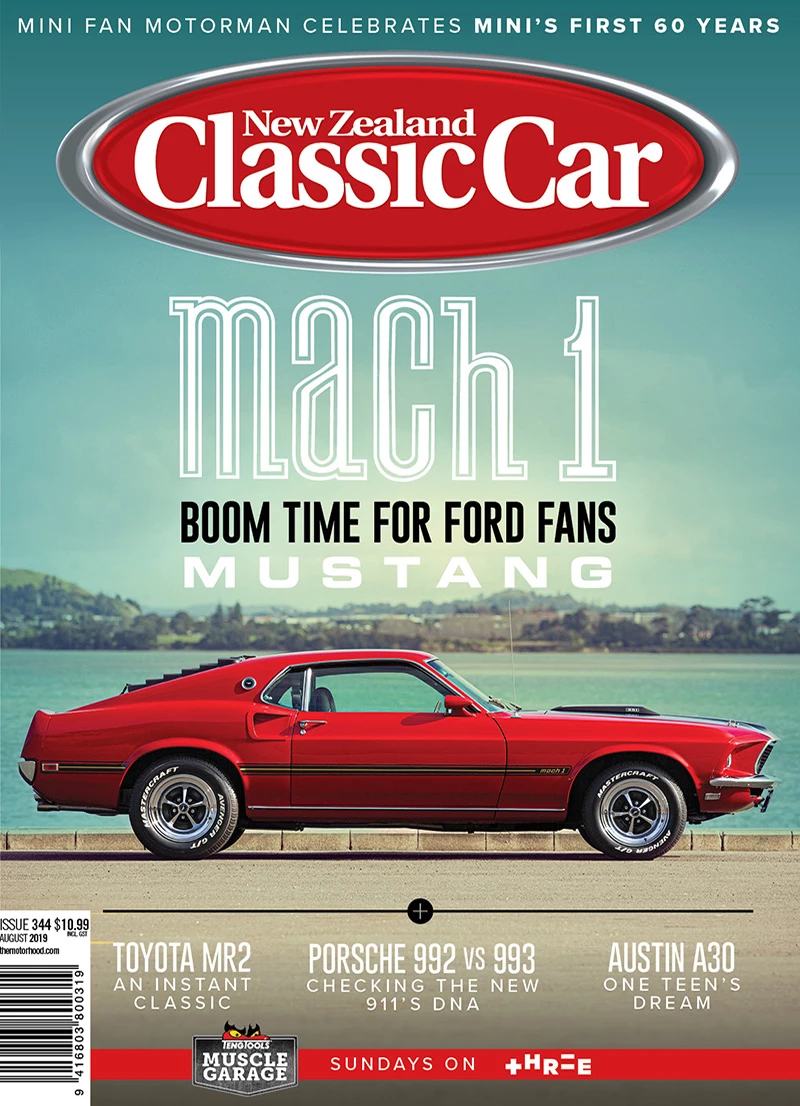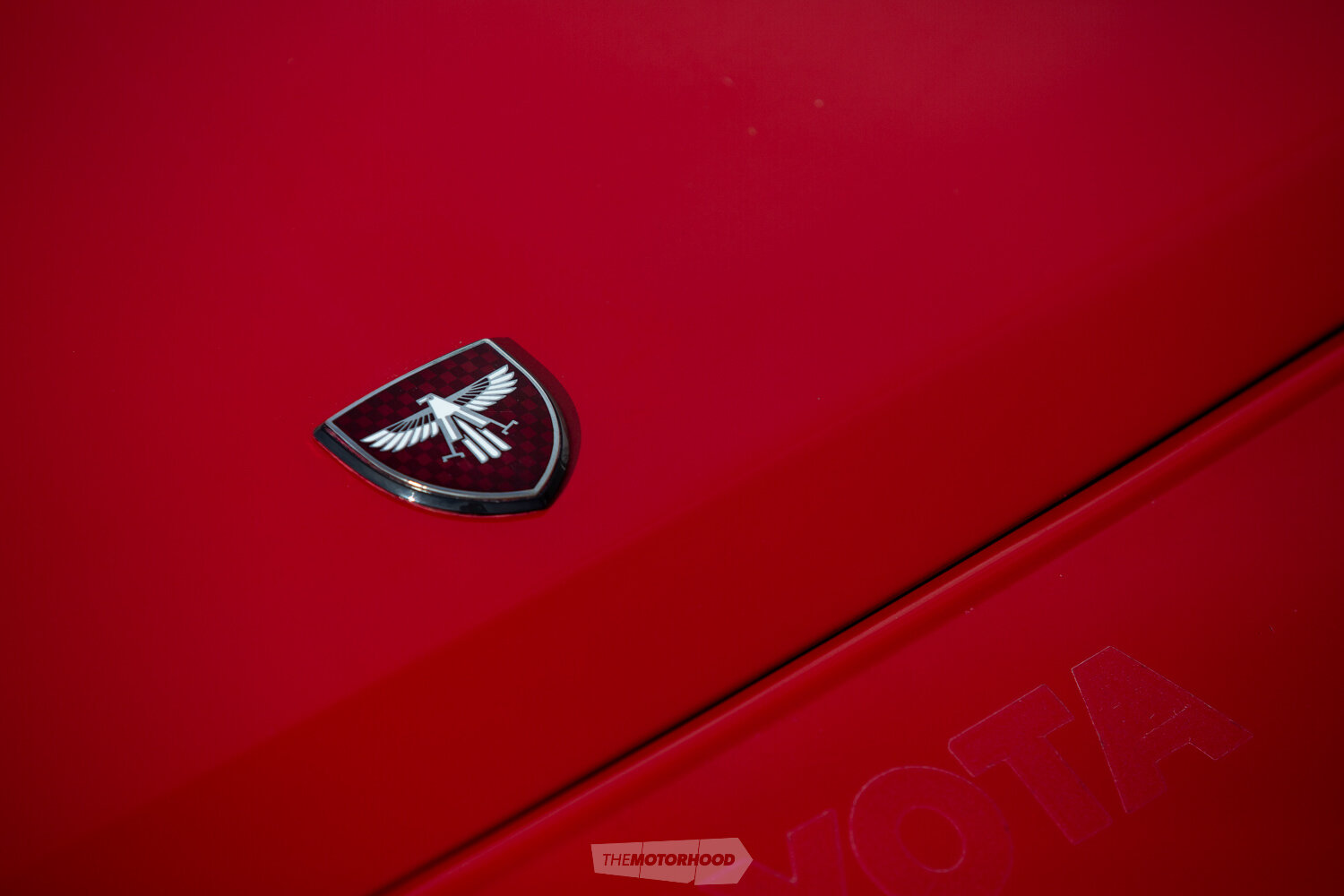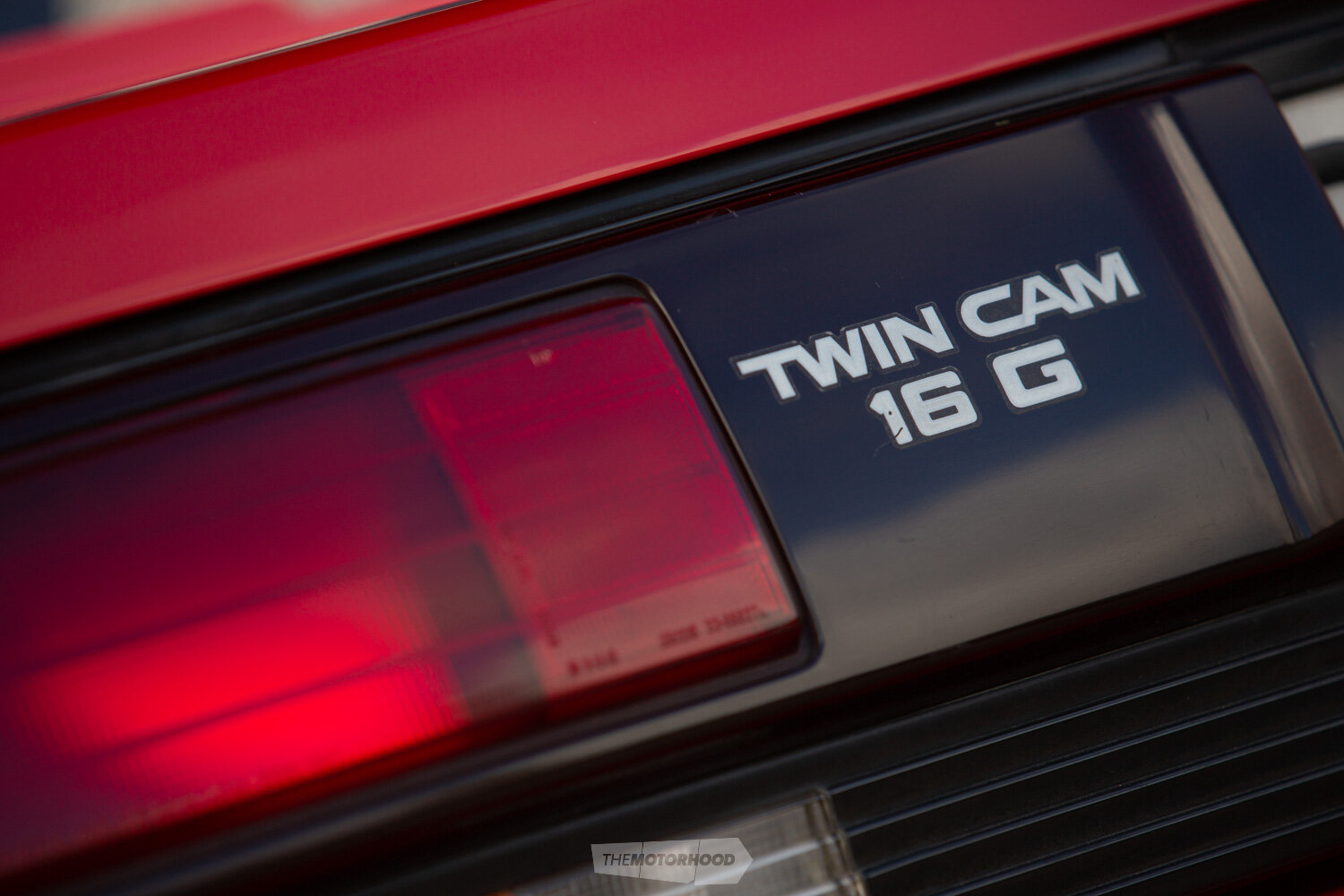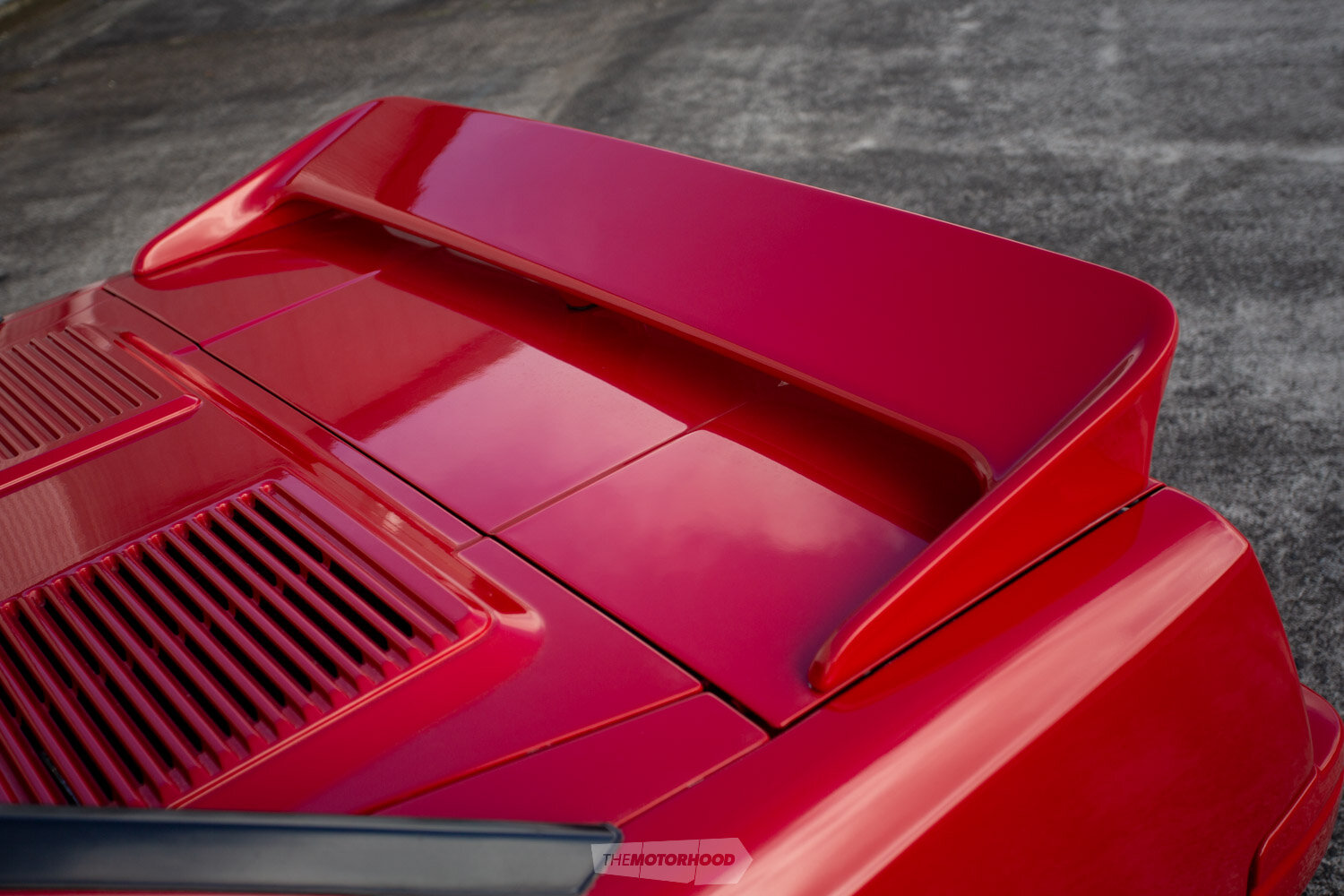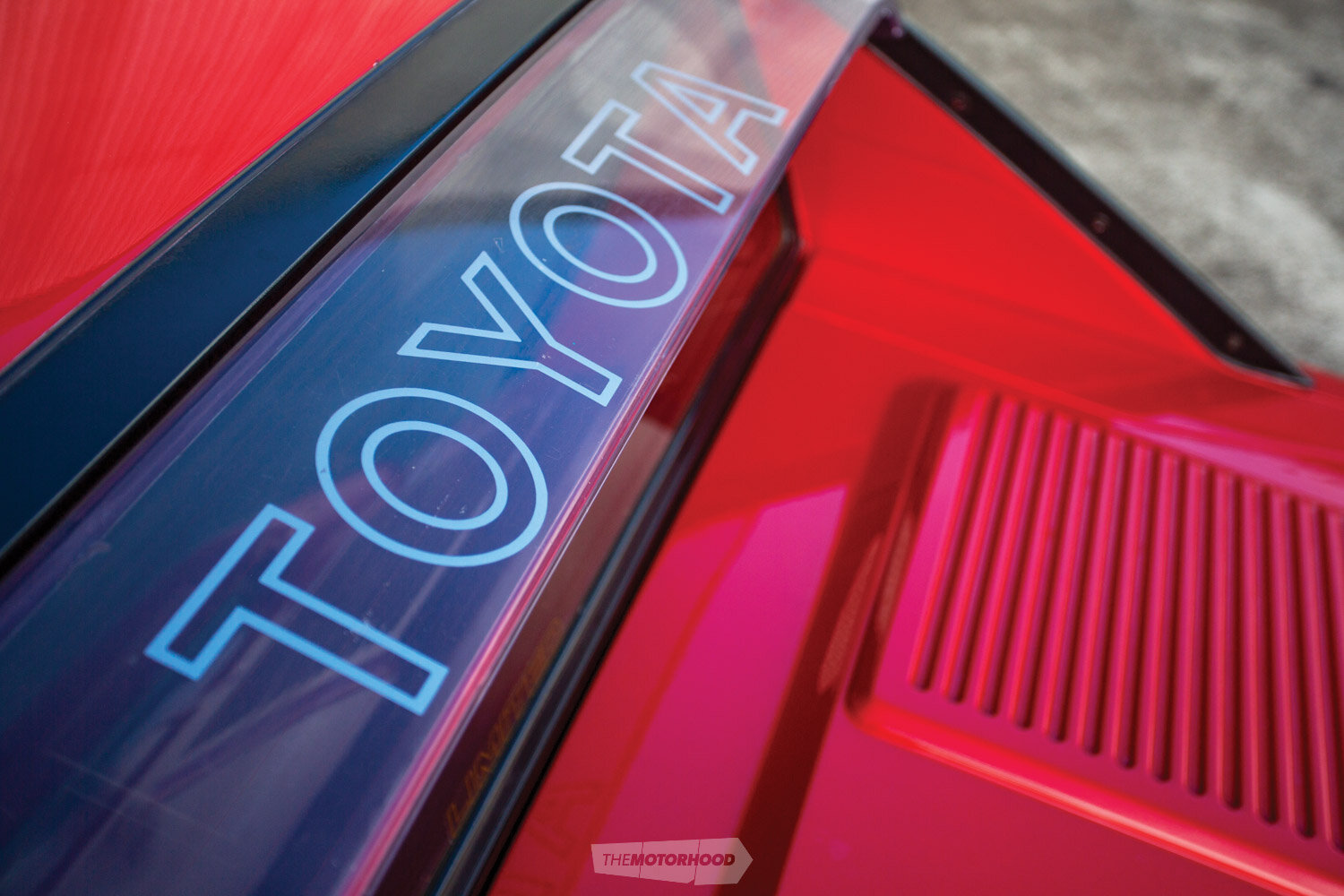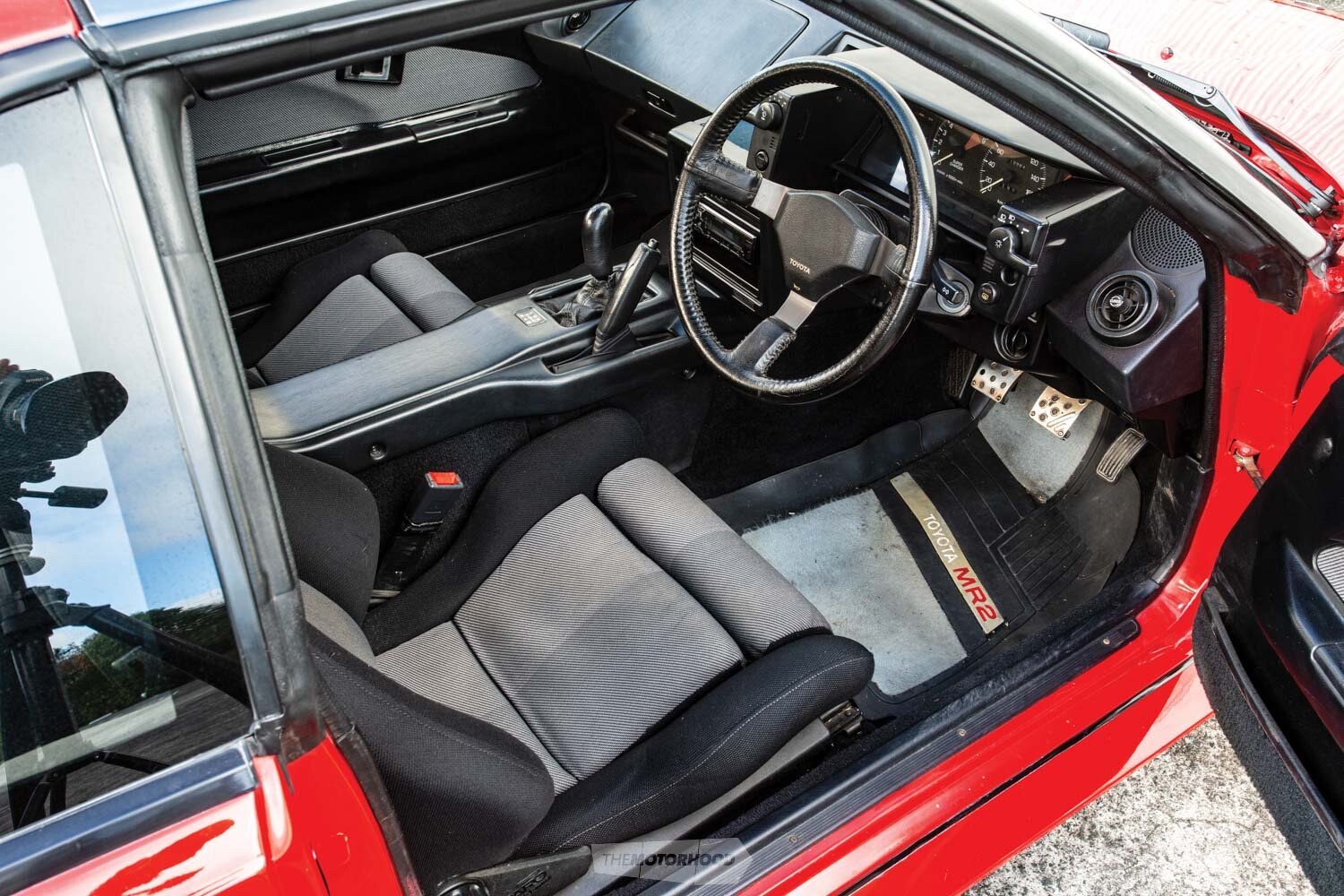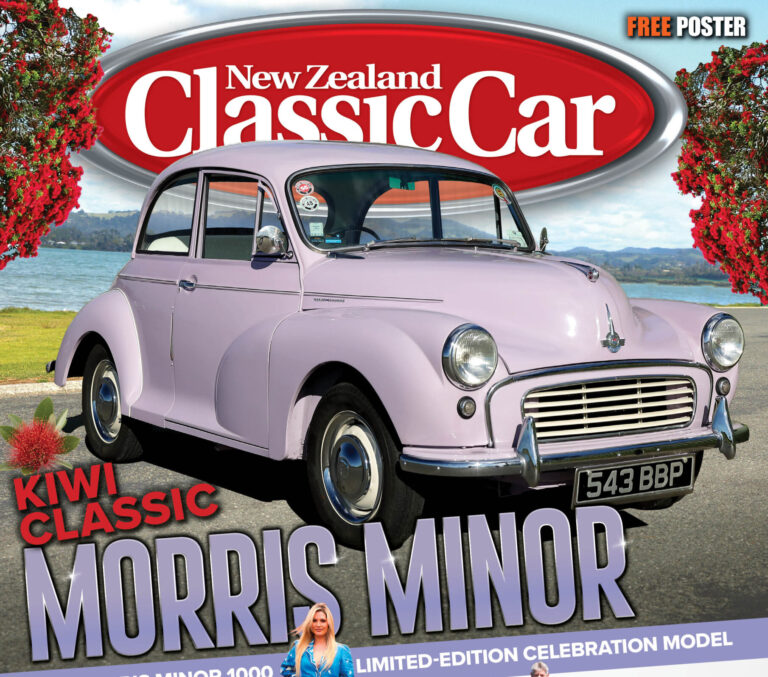Defining 1980s Japanese automotive excessiveness with a supercharged mid-engined and rear-wheel-drive Toyota MR2.
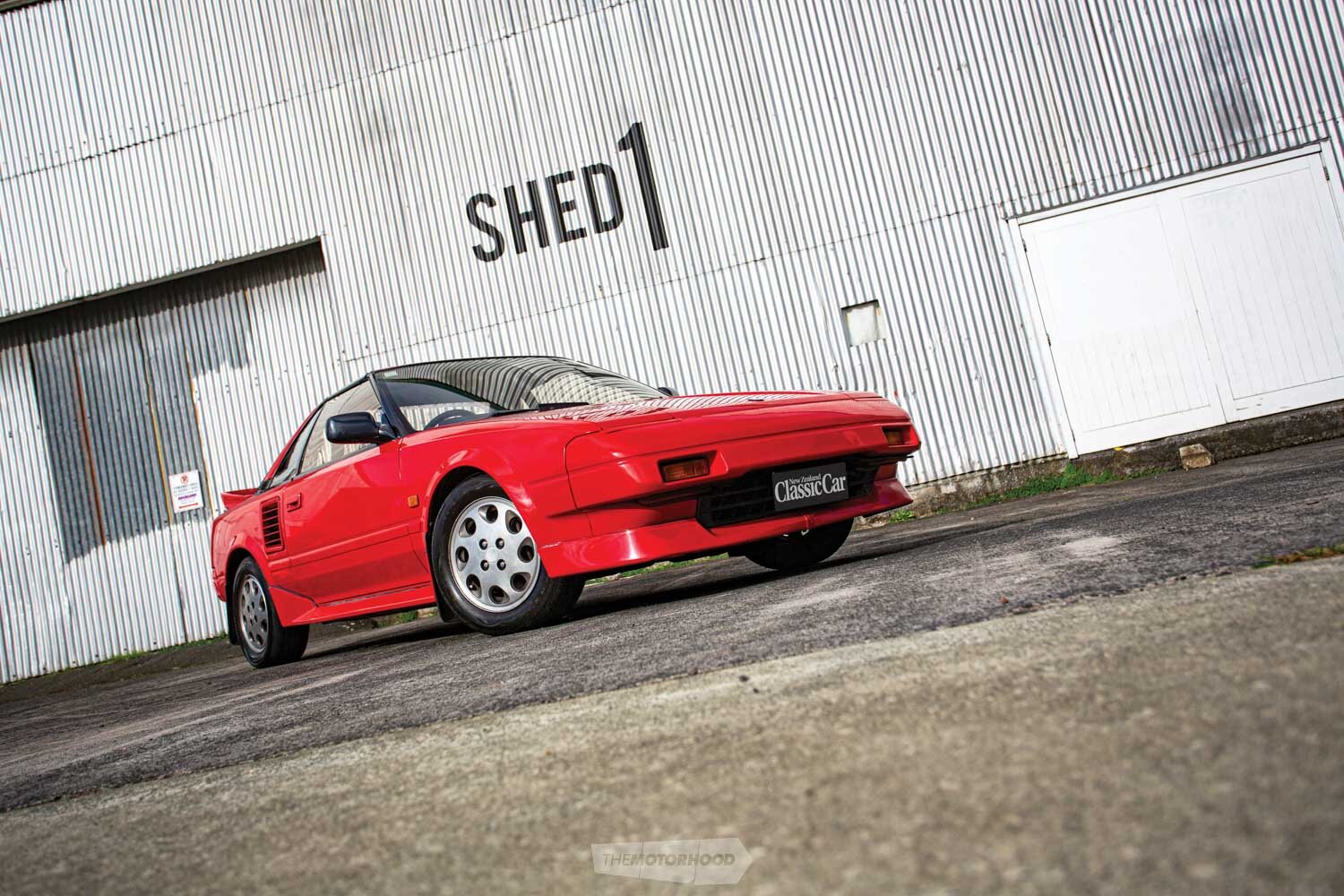
Gripped by a whirlwind of rapid technological advances, 1980s Japan was riding on the tip of an economic boom that propelled the country to the forefront of global spending. Domestic consumers were buying anything and everything at a rate unseen before, and, with this ever-increasing demand came bigger, better, and wilder products. Already strong from a similar boom in the decades prior, automakers were engaged in fierce boardroom battles for this new money and aimed to keep buyers loyal with increasingly more adrenaline-inducing packages. This era gave rise to some of the most notable Japanese sports cars to have graced the world’s roadways.
Pushing boundaries
After the motor sport success of Toyota’s Corolla, Starlet, and Celica model lines, chief development engineer Akio Yoshida focused efforts elsewhere, exploring alternatives for engine placement and drive method. Known initially as the ‘SA-X prototype’, and later the ‘SV-3 prototype’, Yoshida’s design would eventually go into production as the first mass-produced mid-engined car to come from a Japanese manufacturer: the Toyota MR2.
Introduced in 1984, the MR2 nameplate spans three generations and 23 years of continuous production. It’s the first-generation AW11 that is commonly regarded as one of the most underrated platforms of the era. It built a reputation as a lightweight, potent, corner-happy sports car, albeit with a typical mid-engine predilection for snap oversteer. By the time the AW11 hit the market in Japan, those of us on the bottom of the world had already become familiar with the usual offerings from the Land of the Rising Sun but had yet to see such automotive excess locally.
With a short wheelbase, courtesy of the two-seater design, a traction-focused weight balance afforded by the mid-mounted and potent 1600cc 4A-GE engine package — plus the option to add a supercharger — it’s easy to see why the AW11 was so popular. While the AW11 was never sold new on our shores, all that fuss coming in from offshore media outlets meant that many here were left hot under the collar, so a number of imports crossed our borders within a couple of years.
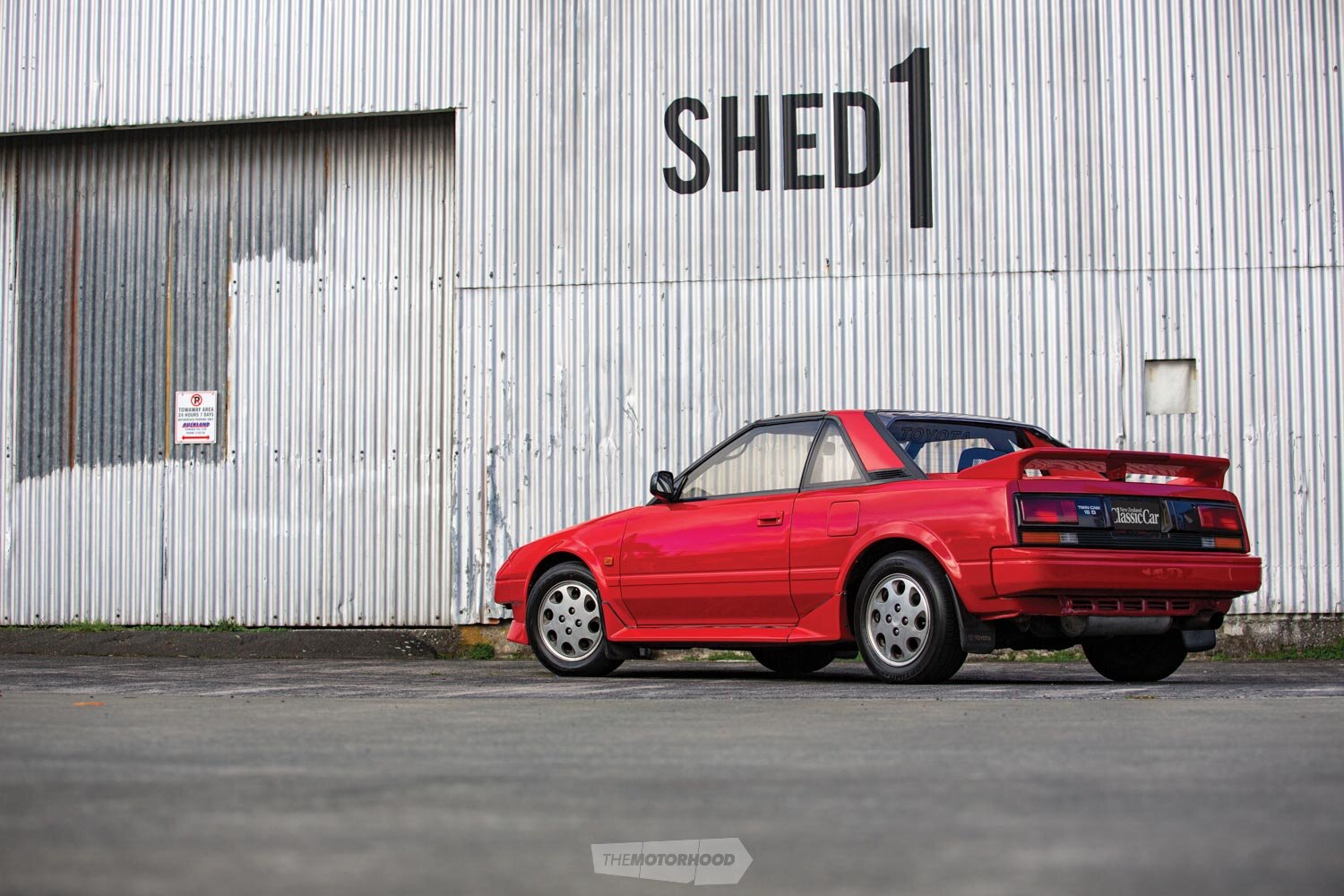
Manufactured in SC-specification for the 1989 model year, this AW11 houses what is perhaps the most desired running-gear combination, with the supercharged 4A-GZE engine and five-speed manual gearbox
A new home
The example featured here was one of those imports, landing in 1991 with just 4000-odd kilometres on the clock. The odometer now reads 91,000km, and the car’s still in remarkably original condition, having escaped the fate of many of its counterparts. If it wasn’t the rust plague that is known to eat these things from the inside out, it was the high-speed antics that led owners into hard lessons on ‘snap oversteer’ — and their cars to the scrapyard. For many of the remainder, it was the all-too-familiar story of many of the era’s Japanese offerings, which declined in value over the decade following their release and then became favourites with modifiers, thanks to their performance-oriented running gear. However, as we’ve seen in recent years, a rapidly declining supply plus a rise in demand has meant that tidy surviving AW11s are being added to classic collections across the world.
It’s owned by the writer: automotive journalist and ’80s Toyota enthusiast Jaden Martin. Despite a background that favours performance over originality — I typically write for sister publication NZ Performance Car — the AW11 is one car that will remain true to how it left the factory while under my ownership. In all honesty, it wasn’t something I was out looking to purchase; it was more a case of stumbling across a small advertisement in the depths of the internet and not being able to resist going to look at it out of curiosity. Once I realized the condition it was in, and how low the kilometres were, there wasn’t the option to leave empty-handed. I couldn’t let it be sold to someone who would wreck it.
Tracing the history
According to the original ownership documents, the car has spent almost all its life in the Waikato/Coromandel region of New Zealand. Brought into the country as a private import by David and Beverly Joblin of Hamilton, the car spent four years with them before it was traded in at Nicholson United, Huntly (known today as ‘Nicholson Automotive’), in 1995. It didn’t take up space on the Nicholson yard for long; a mere two weeks later, Doug and Liz Stewart handed over $13K to take it home. The MR2 spent the next 21 years being driven only on weekends and maintained by its very particular mechanic owner. The pair finally let it go in 2016, when it bounced from an Irish expat to an Auckland owner before calling my garage home.
Manufactured in SC-specification for the 1989 model year, this AW11 houses what is perhaps the most desired running-gear combination, with the supercharged 4A-GZE engine and five-speed manual gearbox. Toyota employed both naturally aspirated (NA) and supercharged variations of the high-revving 4A platform to power the first-generation MR2, starting with the NA 4A-GE (1587cc) in-line four-cylinder that features dual overhead camshafts and four valves per cylinder, borrowed from the E80 series of Corolla.
Introduced with the famed AE86 in rear-wheel-drive configuration, and widely used as a transverse front-wheel-drive power plant, the 4A-GE was assisted by a secondary intake system, dubbed the ‘Toyota Variable Induction System’ (T-VIS), to reduce low-end torque loss from the large intake-port size — this was later remedied with a smallport head, although the AW11 would never benefit from the change. Depending on the market, power levels fluctuate from 84kW in the US to a healthy 95kW in Japanese specification.
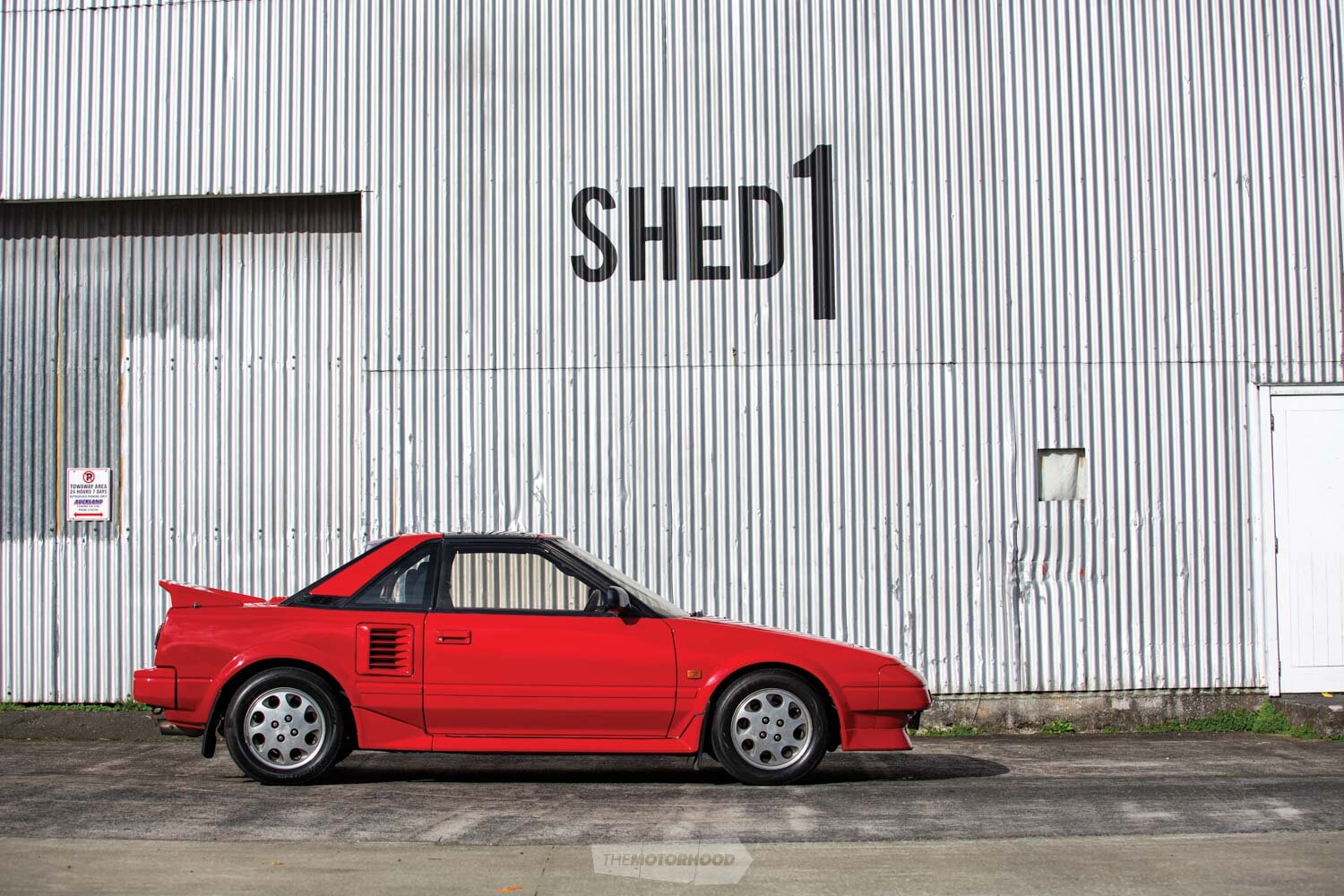
Suspension and handling were designed in-house at Toyota, with the help of Lotus engineer Roger Becker. It owes many of its characteristics to Lotus sports cars from decades earlier — Toyota even opted to omit its own active suspension technology (Toyota Electronic Modulated Suspension — TEMS)
Desirable pieces
It wasn’t until 1986 that Toyota introduced the supercharged version, retaining the same block and head with the addition of forged pistons, a Roots-type supercharger, and Denso top-mounted intercooler. T-VIS was thrown in the bin and the compression ratio lowered to a boost-friendly 8:1 to safely accept the 8psi that is delivered through an electromagnetic clutch pulley system that sees low-rev fuel economy replaced by boost with a ‘spirited’ depression of the throttle, if so desired. That raised the output to 108kW at 6400rpm and 186Nm of torque from 4400rpm, leading to a 0–100kph figure of 6.82 seconds, in part aided by the 1131kg curb weight.
Being an ’89, this AW11 is the last of the first-generation MR2 and bears the final aesthetic revisions that came with Toyota’s continued development of the model: the facelift front bumper and bumper lip, spoiler-integrated high-stop light, aerodynamic side mirrors, and redesigned tail lights. It is a targa model, which reduces rigidity slightly, although it does allow northward vision on those night-time drives, and the lid can be removed with the flick of a lever in the heat of summer. Also specific to the SC model is the engine cover with twin raised vents, only one of which feeds the intercooler — the driver’s side vent is enlarged to reduce engine-bay ambient temperatures. This model also received the tear-drop 14-inch aluminium wheels and boasts Koni adjustable-damper suspension. I also need to applaud the good taste of whoever ordered the car for ticking the Recaro factory option box, which saw a set of Recaro Fishnet seats added to the interior, including the optional floor mats.
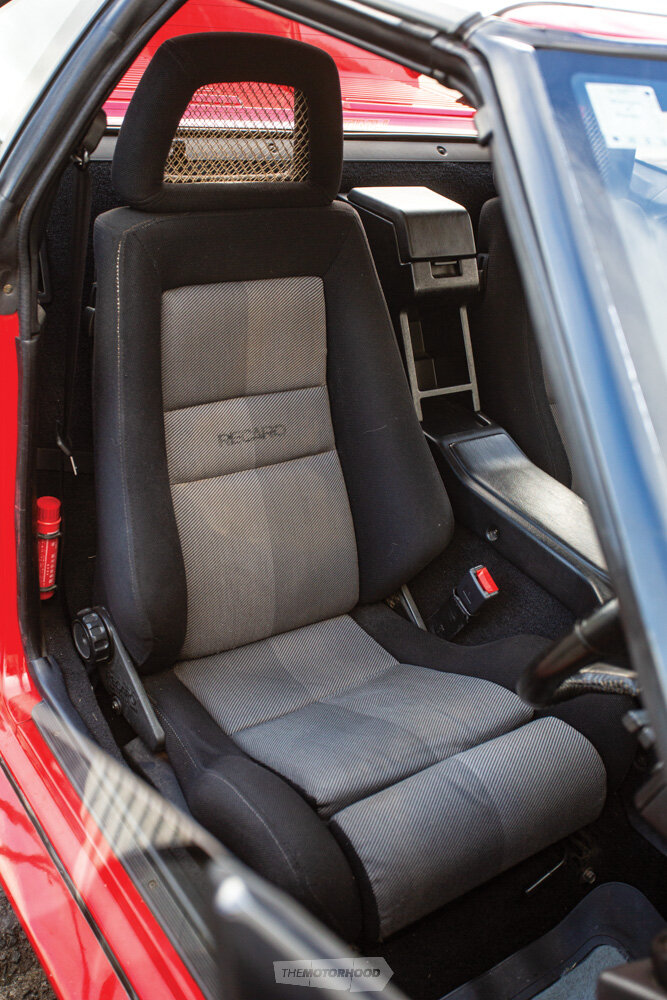
The classic future
When I took ownership of the car, it was missing very few of the original items. Anything that it didn’t already have, I sourced and replaced with the genuine examples, right down to the emergency flare mounted behind the driver’s seat and the intercooler vanity cover that hinders performance — which is why they tend to be missing. Other than what you’d expect to go walkabout over 30 years, it appears to have had extremely caring owners throughout its life, and the condition of the Recaro interior is unlike any I have seen before.
It’s safe to say that with a supercharged mid-mounted engine and transverse rear-wheel drive crammed into a short, snappy chassis, the AW11 epitomizes an automotive industry sprinting towards the future with no roadblocks to slow it down — 1980s Japanese automotive excess in full swing. As far as my example is concerned, I assure you that my venture into classic car ownership will not be a short one, but the hard task now will be resisting the urge to ‘improve’ anything that would alter its originality.
As we’ve seen in recent years, a rapidly declining supply plus a rise in demand has meant that tidy surviving AW11s are being added to classic collections across the world

1989 Toyota MR2 SC (AW11)
Production years: 1986 to 1989
Engine: 4A-GZE supercharged four-cylinder
Configuration: Transverse mid-mounted, rear-wheel-drive
Capacity: 1587cc
Bore/stroke: 81mm/77mm
Head: Dual overhead-camshaft, four valves per cylinder, 16 valves
Block: Forged and dished pistons
Comp ratio: 8:1
Max. power: 108kW at 6400rpm
Max. torque: 90Nm at 4000rpm
Boost: 8psi
Fuel system: Port electronic-fuel-injection
Transmission: Toyota C52 five-speed manual
Suspension, F/R: Koni damper-adjustable MacPherson strut, anti-roll bar / Koni damper-adjustable Chapman strut
Steering: Rack-and-pinion
Brakes, F/R: Two-piston calipers, 244mm ventilated disc / Single-piston calipers, 239mm disc
Dimensions
Overall length: 3950mm
Width: 1666mm
Height: 1234mm
Wheelbase: 2600mm
Track, F/R: 1475mm/1447mm
Kerb weight: 1131kg
Performance
Max. speed: 209kph
0–100kph: 6.82 seconds
0–400m: 15.0 at 91mph (146kph)
This article originally appeared in New Zealand Classic Car issue No. 344 — click here to purchase a copy
